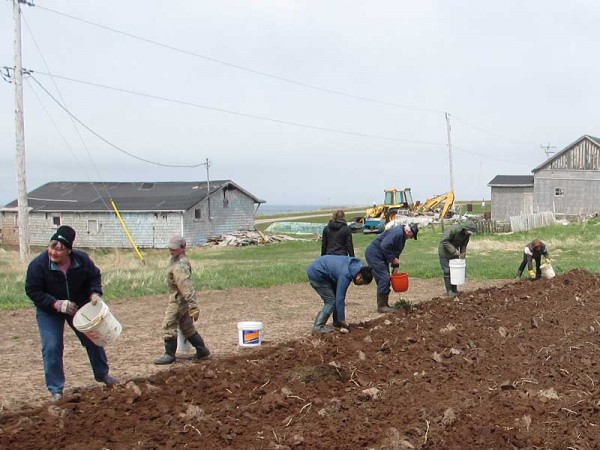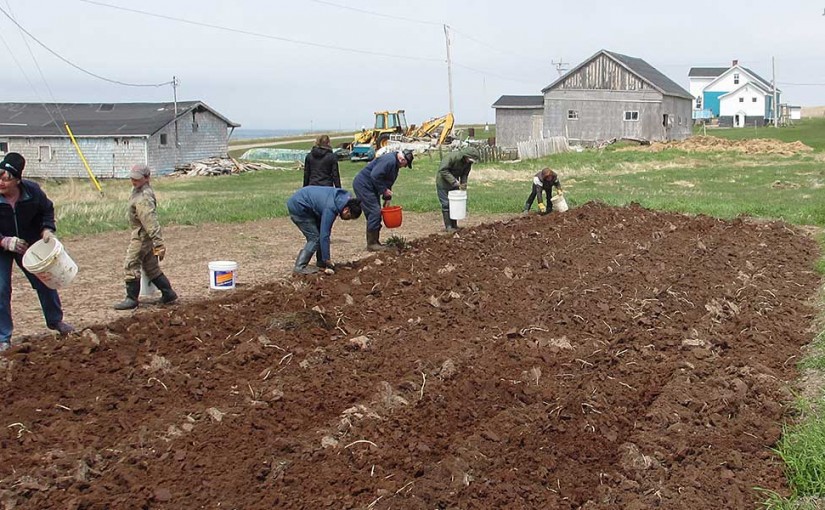Parishioners in a remote Quebec island community have gained major support for their ecclesiastically based community farm, thanks to a grant from the Anglican Foundation of Canada.

Located near Grosse Île in the Diocese of Quebec, All Saints Memorial church on Entry Island recently received a $15,000 innovative ministries grant from the foundation for its efforts to achieve self-sustainability in food production through a return to traditional farming.
The Rev. Jeffrey Metcalfe, incumbent in the Parish of the Magdalen Islands, called the grant “incredibly significant.”
“Our members…won’t necessarily have the capital to invest in [the project] themselves…but they do have the labour and they have the traditional skills,” Metcalfe said. “What the grant allows us to do is it gives us the capacity that we need to do these things.”
All Saints Memorial is the only church in the small anglophone community of Entry Island, which has a population of 65 people – the majority of whom are more than 50 years old.
Formerly a self-sufficient community where families produced their own food, with a dwindling and aging population came widespread nostalgia for that bygone era. It was Metcalfe who first proposed the idea of a community farm that would draw upon the gardening skills that most Entry Island residents grew up learning.
Besides bringing residents together to achieve a common goal, the project also aims to embody the fifth Mark of Mission – which counsels believers to “strive to safeguard the integrity of creation and sustain and renew the life of the earth” – by avoiding pesticides and using local seeds.
An additional, educational component seeks to teach the benefits of sustainable organic gardening to the thousands of tourists who pass through the area each year.
“While we’re at the same time trying to do all these other things with the community – trying to make healthy food for ourselves, trying to inspire people to entrepreneurial activity – we’re also hoping to inspire tourists by making our community sort of a living museum of creation care,” Metcalfe said.
Parishioners began ploughing the land in fall 2013 and planted their first crops the following spring. Besides growing food such as herbs, corn and potatoes, the parish last summer created its own beehive.
The project’s goal of self-sustainability along with its educational component struck a chord with the Anglican Foundation, which awarded the grant to All Saints Memorial in late November along with other recipients.
“We try and go where the need is greatest,” said executive director Judy Rois, who called the garden project “very, very creative and innovative.”
With the project now set to enter its second phase, parishioners are busy conducting research into future additions such as a greenhouse and glass beehive.
The success of the project has exceeded the expectations of Metcalfe, who described a “culture shift” among residents that now look to the future with renewed optimism.
“I’ve seen the shift happen from a community that spends a lot of its time worrying to a community that’s starting to remember how to have fun and how to take pleasure in life’s simple things – which I think, to me, is all the success that we ever want or even need.”
Interested in keeping up-to-date on news, opinion, events and resources from the Anglican Church of Canada? Sign up for our email alerts .

